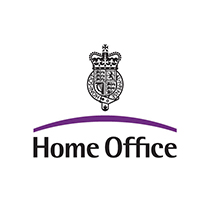Anti-Slavery and Human Trafficking Policy
1. Policy statement
1.1
Modern slavery is a crime and a violation of fundamental human rights. It takes various forms, such as slavery, servitude, forced and compulsory labour and human trafficking, all of which have in common the deprivation of a person's liberty by another in order to exploit them for personal or commercial gain. We have a zero-tolerance approach to modern slavery and we are committed to acting ethically and with integrity in all our business dealings and relationships and to implementing and enforcing effective systems and controls to ensure modern slavery is not taking place anywhere in our own business or in any of our supply chains. The most common forms of modern slavery are set out below and LA International is committed to ensuring that is not taking place in its supply chain:
Forced labour – any work or services which people are forced to do against their will with the threat of destitution, detention, violence (including death) to themselves or members of their families.
Debt bondage or bonded labour – the world’s most widespread form of pay off the debt, then losing control over the conditions of both their employment and the debt.
Human trafficking– involves transporting, recruiting or harbouring people for the purpose of exploitation, using violence, threats or coercion.
Descent-based slavery – where people are born into slavery because their ancestors were captured and enslaved; they remain in slavery by descent.
Child slavery – many people often confuse child slavery with child labour, but it is much worse. Whilst child labour is harmful for children and hinders their education and development, child slavery occurs when a child is exploited for someone else’s gain. It can include child trafficking, child soldiers, child marriage and child domestic slavery.
Forced and early marriage – when someone is married against their will and cannot leave the marriage. Most child marriages can be considered slavery
1.2
We are also committed to ensuring there is transparency in our own business and in our approach to tackling modern slavery throughout our supply chains, consistent with our disclosure obligations under the Modern Slavery Act 2015. We expect the same high standards from all of our contractors, suppliers and other business partners, and as part of our contracting processes, we include specific prohibitions against the use of forced, compulsory or trafficked labour, or anyone held in slavery or servitude, whether adults or children, and we expect that our suppliers will hold their own suppliers to the same high standards.
1.3
This policy applies to all persons working for us or on our behalf in any capacity, including employees at all levels, directors, officers, consultant companies, agency workers, seconded workers, personnel, agents, contractors, external consultants, third-party representatives and business partners.
1.4
This policy does not form part of any personnel/employee's contract of employment/engagement and LA International may amend it at any time.
2. Responsibility for the policy
2.1
LA International’s board of directors has responsibility for ensuring this policy complies with LA International’s legal and ethical obligations, and that all those under our control or supplying services to LA International comply with it.
2.2
The HR manager has primary and day-to-day responsibility for implementing this policy, monitoring its use and effectiveness, dealing with any queries about it, and auditing internal control systems and procedures to ensure they are effective in countering modern slavery.
2.3
Management at all levels are responsible for ensuring those reporting to them understand and comply with this policy and are given adequate and regular training on it and the issue of modern slavery in supply chains.
2.4
You are invited to comment on this policy and suggest ways in which it might be improved. Comments, suggestions and queries are encouraged and should be addressed to the HR manager
2.5
In Addition to the responsibilities outlined above, LA International has implempted procedures specifically aimed at the prevention of modern slavery. These incluide supplier due diligence checks, contractural safeguards, and internal risk assessments. The HR Manager, in collaboration with relevant departments, is resposible for ensuring these procedures are consistenly applied and updated in line with evolving best practices and legal requirements.
3. Compliance with the policy
3.1
You must ensure that you read, understand and comply with this policy.
3.2
The prevention, detection and reporting of modern slavery in any part of our business or supply chains is the responsibility of all those working for us or under our control. You are required to avoid any activity that might lead to, or suggest, a breach of this policy.
3.3
You must notify your manager OR the HR manager as soon as possible if you believe or suspect that a conflict with this policy has occurred, or may occur in the future
3.4
You are encouraged to raise concerns about any issue or suspicion of modern slavery in any parts of our business or supply chains of any supplier tier at the earliest possible stage.
3.5
If you believe or suspect a breach of this policy has occurred or that it may occur you must notify your manager or the HR manager OR report it in accordance with our Whistleblowing Policy as soon as possible. You should note that where appropriate, and with the welfare and safety of local workers as a priority, we will give support and guidance to our suppliers to help them address coercive, abusive and exploitative work practices in their own business and supply chains.
3.6
If you are unsure about whether a particular act, the treatment of workers more generally, or their working conditions within any tier of our supply chains constitutes any of the various forms of modern slavery, raise it with your manager or the HR manager.
3.7
We aim to encourage openness and will support anyone who raises genuine concerns in good faith under this policy, even if they turn out to be mistaken. We are committed to ensuring no one suffers any detrimental treatment as a result of reporting in good faith their suspicion that modern slavery of whatever form is or may be taking place in any part of our own business or in any of our supply chains. Detrimental treatment includes dismissal, disciplinary action, threats or other unfavourable treatment connected with raising a concern. If you believe that you have suffered any such treatment, you should inform the HR manager immediately. If the matter is not remedied, and you are an employee, you should raise it formally using LA International’s Grievance Procedure, which can be found on Sharepoint.
3.8
LA International has established a framework for monitoring and assessing the implemptation of this policy and related procedures. This includes periodic audits, supplier evaluations and internal reviews to ensure compliance and identify areas of improvement. Findings from these asssessments are reported to senior management and used to inform future policy development and training initiatives.
4. Communication and awareness of this policy
4.1
Training on this policy, and on the risk our business faces from modern slavery in its supply chains, forms part of the induction process for all individuals who work for us, and regular training will be provided as necessary.
4.2
Our zero-tolerance approach to modern slavery must be communicated to all suppliers, contractors and business partners at the outset of our business relationship with them and reinforced as appropriate thereafter.
5. Breaches of this policy
5.1
Any employee who breaches this policy will face disciplinary action, which could result in dismissal for misconduct or gross misconduct.
5.2
We may terminate our relationship with other individuals and organisations working on our behalf if they breach this policy.
If you require further information on this policy or wish to make any comments on this policy, please send an email to compliance@lainternational.com. you can also contact the hr manager on 01782 203040









